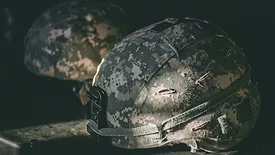Home » Keywords: » investigations
Items Tagged with 'investigations'
ARTICLES
Security Talk
The 3 C's of a successful security investigation
Cynthia Merchant, Associate Director, Global Security at Novartis, discusses what she's learned over her career in investigations.
January 12, 2024
Enterprise Services
Best practices for detecting and managing fraud
A look at changes in the fraud management landscape, the building blocks of a strong fraud investigation process, and what to avoid.
October 5, 2023
Sign-up to receive top management & result-driven techniques in the industry.
Join over 20,000+ industry leaders who receive our premium content.
SIGN UP TODAY!Copyright ©2026. All Rights Reserved BNP Media.
Design, CMS, Hosting & Web Development :: ePublishing














